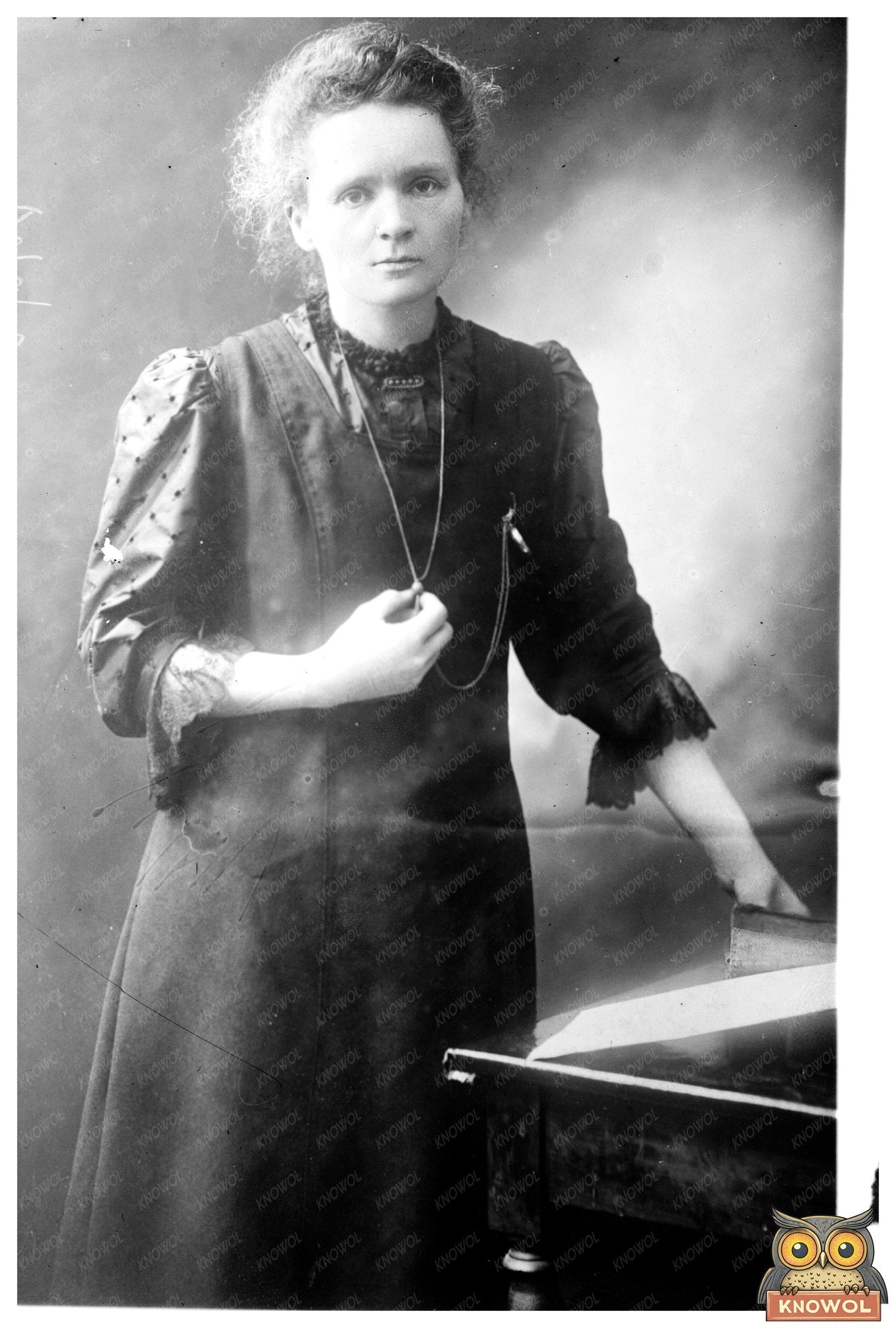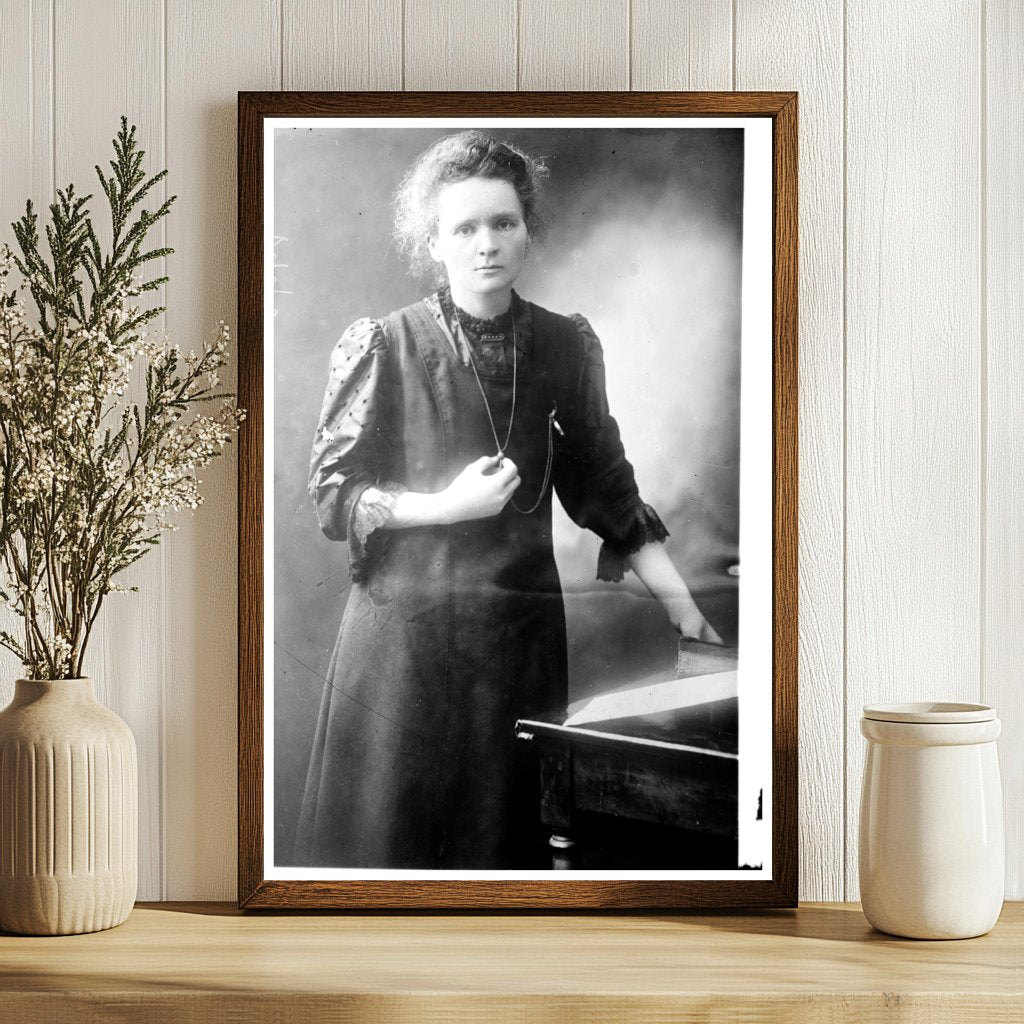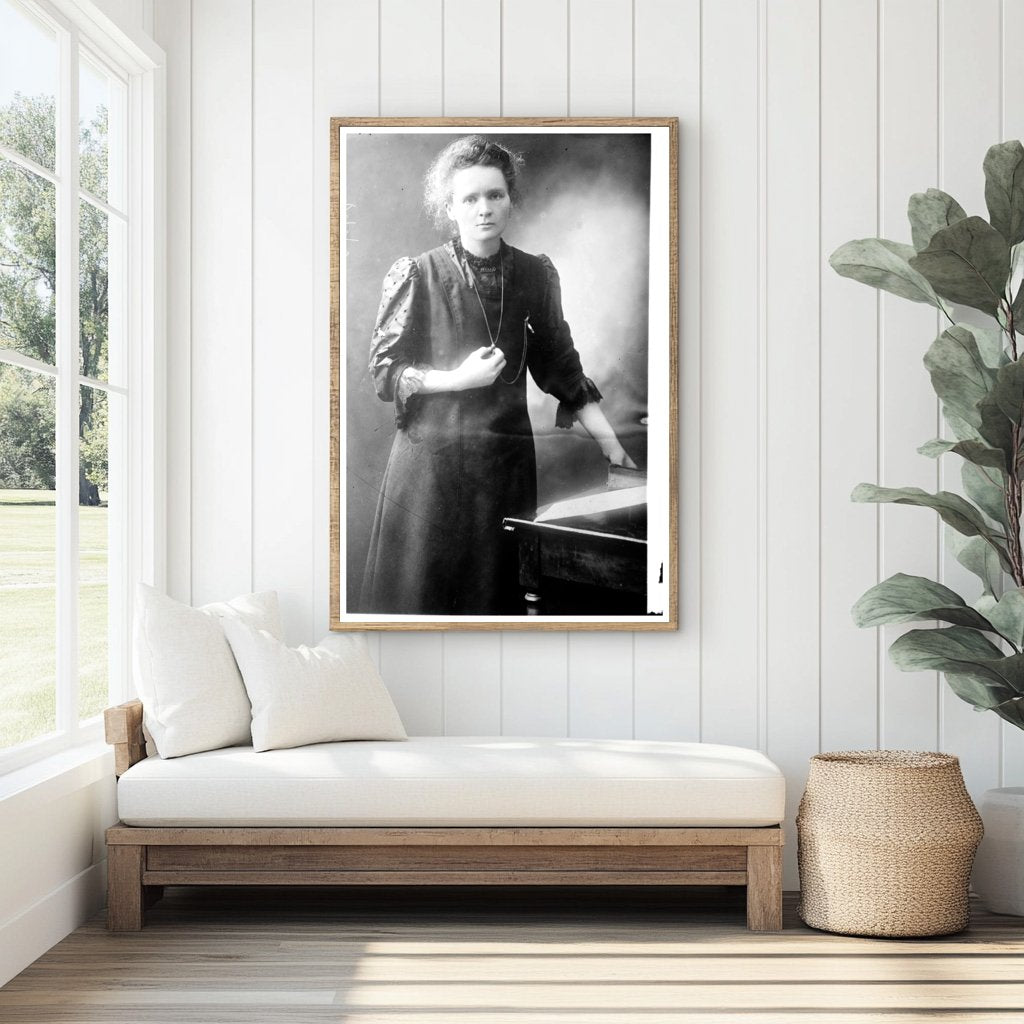


Marie Curie: Pioneer of Radioactivity in Science
This photograph captures the renowned physicist and chemist, Madame Marie Curie, a pioneering figure in the field of radioactivity. Born in Poland in 1867, Curie made significant contributions to science, becoming the first woman to win a Nobel Prize. She was awarded the Nobel Prize in Physics in 1903, shared with her husband Pierre Curie and Henri Becquerel, for their work on radioactivity, a term she coined. In 1911, Curie further broke barriers by winning a second Nobel Prize, this time in Chemistry, for her discovery of the elements radium and polonium.
Curie’s work laid the groundwork for advancements in multiple scientific fields, including medical treatments and nuclear physics. This photograph illustrates her as a figure of immense influence and determination. Curie faced numerous challenges in a male-dominated field but continued to push boundaries. Her relentless pursuit of knowledge not only advanced science but also reshaped societal views about women’s roles in academia and research. This image is a testament to her legacy as a trailblazer and her enduring impact on science and society.

Marie Curie: Pioneer of Radioactivity in Science
